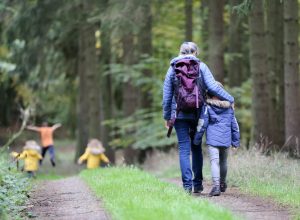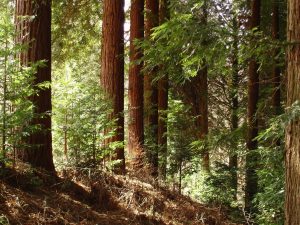Summary
This research project aimed to improve the representation and understanding of the social and cultural values of treescapes in plant health policy. Existing evidence on the social and cultural values of treescapes by publics tends to be limited in scope, for example to recreation, aesthetics, or health values. Little exists to assess a full range of social and cultural values. Much of the existing literature is primarily qualitative which does not lend itself easily to incorporation in decision-making. Having a way to quantify the range of social and cultural values associated with treescapes is important if decision makers are to effectively take these values into account. This is particularly the case currently with ambitious plans to increase tree cover.


Research Objectives
- Improve the representation and understanding of social and cultural values of treescapes in plant health policy
- Review existing evidence of the social and cultural values of treescapes
- Develop and test an approach for capturing the social and cultural values of treescapes quantitatively and explore the impact of pests and diseases on these values
- Explore options for applying an economic monetary value to the social and cultural values identified.
Findings and Recommendations
The research project is now in its fourth year. The research to date has included the following:
- A rapid review of literature on the social and cultural values of trees, woods and forests at risk from tree pests and diseases.
- Two workshops with a range of stakeholders (academics, policymakers and practitioners) to discuss social and cultural values and ways of capturing and quantifying them.
- Development of a research design and proposal.
- Using the literature review we developed and tested a composite measure of 19 statements that capture a broad range of social and cultural values of treescapes. The composite measure can be used in future surveys to understand values and / or explore changes in values over time.
- We tested the measure via interviews and a scoping survey and made changes based on comments we received.
- We ran a survey of 5,000 people in England representative by age and region. The survey was run online.
- We have submitted a paper on the composite measure to an academic journal.
- We are currently working with local authorities to explore how these bodies could incorporate social and cultural values into their tree strategies.
Latest Update
We are currently working on two journal papers.
Our Involvement
Forest Research is leading this research project and is working in collaboration with Fera, the University of York and the Tree Council. The Project Advisory Group includes: the Forestry Commission, Natural England, Environment Agency, Countryside and Community Research Institute and Bangor University.
General Content
For further information please contact liz.obrien@forestresearch.gov.uk
Downloads
Funding & Partners
-
 Defra
Defra -
 University of York
University of York -
 Fera
Fera -
 The Tree Council
The Tree Council
